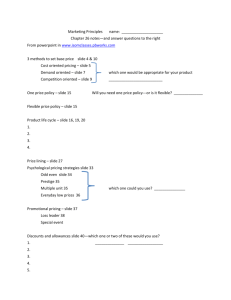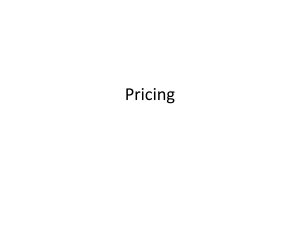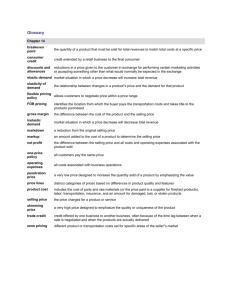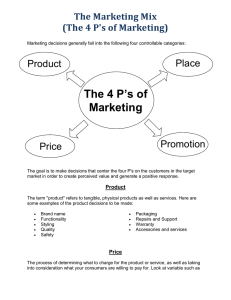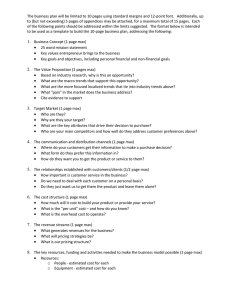Chapter 19
advertisement
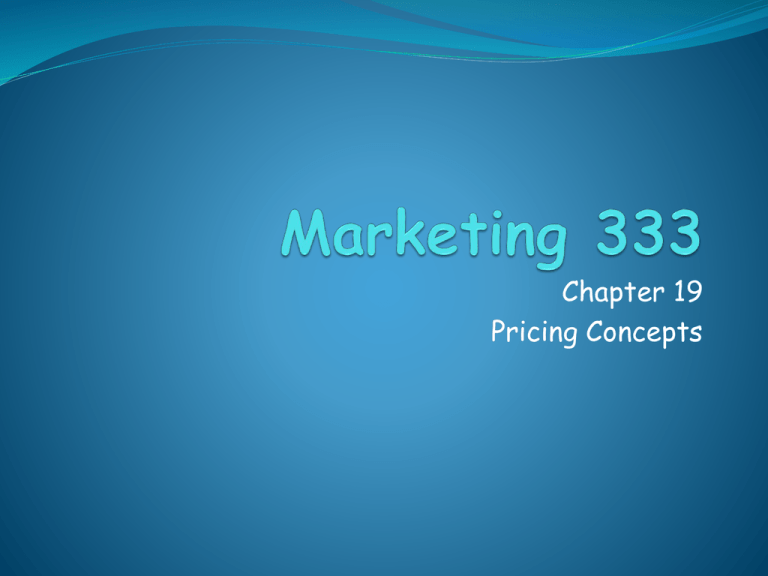
Chapter 19 Pricing Concepts What is Price? The value attached to the product or service Value: the “worth” based on perceived benefits What is given up in exchange for the good or service Currency; credit Barter: exchange of products for something other than money The Importance of Price to Marketing Managers Revenue Profit The price charged to customers multiplied by the number of units sold. Revenue minus expenses. Fundamentals of Pricing Determine pricing objectives Know the importance of price to the target market Know your demand Understand your costs Determine the pricing strategy Pricing Objectives Profit Orientation Sales orientation Status Quo orientation Societal orientation Profit Oriented Pricing Objectives Profit Maximization Satisfactory profits Target Return on Investment Sales Oriented Pricing Objectives Market Share Sales Maximization Status Quo Pricing Objectives Maintain Existing Prices Meet Competition’s prices The Demand Determinant of Price Demand Supply The quantity of a product that will be sold in the market at various prices for a specified period. The quantity of a product that will be offered to the market by a supplier at various prices for a specific period. The Demand Curve The Supply Curve How Demand and Supply Establish Price Price Equilibrium The price at which demand and supply are equal. Elasticity of Demand Consumers’ responsiveness or sensitivity to changes in price. Price Equilibrium Elasticity of Demand Elastic Demand Consumers buy more or less of a product when the price changes. Inelastic Demand An increase or decrease in price will not significantly affect demand. An increase in sales exactly offsets a decrease in prices, and revenue is unchanged. Unitary Elasticity Evaluating a Customer’s Price Sensitivity Are there substitute ways of meeting a need? Is it easy to compare prices? Who pays the bill? How great is the total expenditure? How significant is the end benefit? Is there already a sunk investment related to the purchase? Yield management Systems A technique for adjusting prices that uses complex mathematical software to profitably fill unused capacity Yield Management Systems Options include: Discounting early purchases Limiting early sales at discounted prices Overbooking capacity The Cost Determinant of Price Types of Costs Variable Cost Varies with changes in level of output Fixed Cost Does not change as level of output changes The Cost Determinant of Price Markup pricing Methods Used to Set Prices Keystoning Profit Maximization Pricing Break-Even Pricing Break-Even Pricing Other Determinants of Price Stage of the product life cycle Competition Distribution Strategy Promotion Strategy Perceived Quality The Impact of the Internet Product Selection Shopping Bots Internet Auctions

